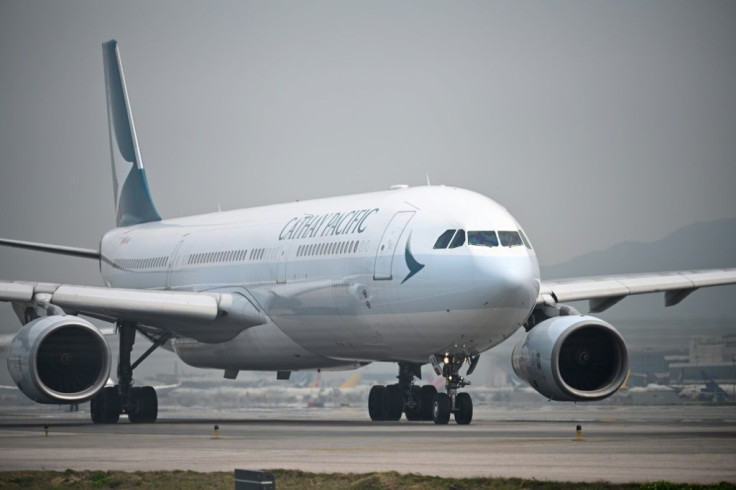Cathay Pacific To Receive $5 Billion State-Backed Bailout, But Longer Term Outlook Cloudy

KEY POINTS
- The Hong Kong government will secure a 6% stake in the airline
- This is the reportedly first time that Hong Kong’s government has directly injected cash into a private company
- Swire Pacific's holding in airline will fall from 45% to 42%, Air China's stake will slip from 30% to 28%.
Cathay Pacific Airways, hammered by the covid-19 pandemic, will receive a $5 billion state-backed bailout and undergo a recapitalization. In exchange the Hong Kong government will secure a 6% stake in the airline and have the right to place two non-voting observers on the company’s board.
The majority of the new capital will come from new shares issued to Aviation 2020, a company owned by the Hong Kong government, as well as a bridge loan provided by the government.
The South China Morning Post reported that this arrangement marked the first time that Hong Kong’s government has ever directly injected cash into a private company.
Cathay, the flag carrier of Hong Kong, will also impose another round of salary cuts on its executives and encourage other employees to take voluntary leaves.
As a result of the restructuring, Cathay’s major shareholders will see their stakes in the airline decline – Swire Pacific's holding will fall from 45% to 42%, while Air China's stake will slip from 30% to 28%. (Swire is a Hong Kong and British conglomerate) Another shareholder, Qatar Airways, will see its stake cut from 10% to 9.4%.
"Cathay Pacific has explored available options and believes that a recapitalization is required to ensure it has sufficient liquidity to weather this current crisis," the company said in a statement to the Hong Kong Stock Exchange. "In the longer term, all aspects of the Cathay Pacific Group's business model will be re-evaluated."
Cathay, which was battered by the fallout from waves of Hong Kong protests last year, has seen virtually all of its flights cancelled in the spring of 2020 due to the pandemic. The company lost $580 million in the first four months of the year. Cathay has been forced ground most of its fleet, operating only cargo flights to Beijing, Los Angeles, Sydney and Tokyo.
Cathay has no domestic market to cushion the blow to its international business.
“The reality is that the recapitalization plan… is basically the only plan available to Cathay Pacific. The alternative would have been a collapse of the company. Commercial debt markets are effectively closed to airlines today who do not have extensive government shareholder support,” Cathay Chairman Patrick Healy said on Tuesday.
While the airline has yet to announce any permanent job cuts, Healy warned that “tough decisions” will have to be made in the fourth quarter in order to “get Cathay Pacific to the right size and shape in which to compete successfully. Nothing is off the table.”
Healy added: “[The management team] will be spending the next few months evaluating the rapidly changing situation that we are in… and to make an assessment in the medium and long term about what the future of travel in this region will look like, and what it will mean for the Cathay group.”
Hong Kong Finance Secretary Paul Chan assured: “It is not our intention to become a long-term shareholder of Cathay Pacific. It is not our intention to interfere with the operation and management of Cathay.”
Luya You, an analyst at BOCOM International in Hong Kong, said the bailout will provide sufficient funding for Cathay.
“A recapitalization plan of this size bodes well for Cathay’s long-term future,” she said. “Big airlines with sufficient liquidity can actually gain significant market share immediately post-COVID.”
Steven Leung, executive director at UOB Kay Hian (Hong Kong) Ltd., also welcomed the bailout.
“With the participation of the Hong Kong government in its capital reorganization, [Cathay] will be kept out of troubles like a cash squeeze at least in the coming months, and both its financial strength and credit rating will get a boost,” he said.
But Shukor Yusof, founder of aviation consulting firm Endau Analytics in Malaysia, was more cautious.
“These funds, along with other efforts like selling some of their planes and possible job cuts, could help tide them over for about two years,” he said. “But the long-term view of Cathay remains uncertain.”
The bailout plans are subject to shareholder approval at an extraordinary general meeting scheduled to be held on July 13. (Air China, Swire and Qatar Airways have pledged to vote in favor of the recapitalization).
© Copyright IBTimes 2025. All rights reserved.





















